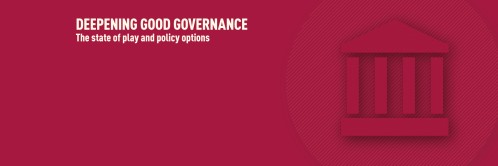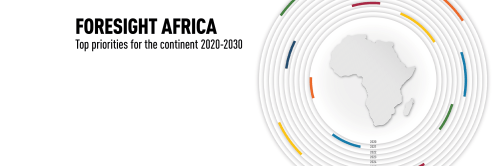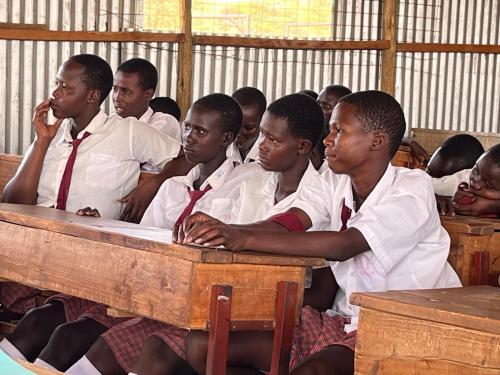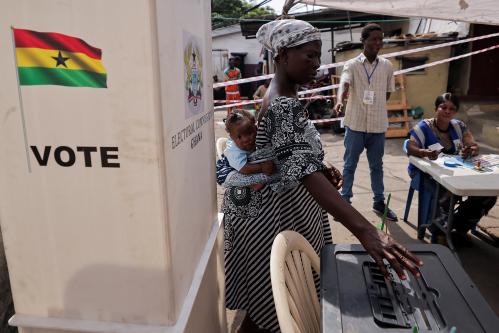According to former United Nations Secretary-General Kofi Annan, “good governance is perhaps the single most important factor in eradicating poverty and promoting development.” Indeed, as Africa Growth Initiative Nonresident Senior Fellow John Mukum Mbaku discussed in his Foresight Africa 2020 piece “Good and inclusive governance is imperative for Africa’s future,” without good and inclusive governance, Africa will not achieve its social and economic targets.
Though Africa has made progress toward democracy and good governance (Figure 1), many challenges persist, and reforms are still needed in many countries, argues Mbaku.
Figure 1. Spread of democracy in sub-Saharan Africa has stagnated since the mid-2000s

Source: Ordu, A., & Golubski, C. (Eds). (2020). Foresight Africa: Top priorities for the continent in 2020-2030. Washington, D.C.: Brookings Institution.
Importantly, as Mbaku explores, a lack of democratic reforms and good governance damage a state’s ability to ensure peace and security as well as the economic growth needed to tackle poverty. In other words, he writes, the absence of good governance too often hinders African countries from creating and sustaining peaceful coexistence thus hindering economic growth given that wealth creation and growth are intimately intertwined with peace and security.
He ends with recommendations to successfully bolster good and inclusive governance. More specifically, he states that countries should strive for a governance structure that addresses peaceful coexistence and economic development, inequality, climate change, pandemics, and regional cooperation. To do so, he offers five recommendations:
- Countries in or recovering from crisis must engage in process-driven constitution-making and produce constitutional principles to inform and guide the drafters while safeguarding against abuses of power.
- Countries that have a progressive and inclusive constitution undergirded by the separation of powers should engage in national dialogue to help citizens understand and appreciated the importance of the constitution to governance and human rights.
- With the aid of civil society, all countries should develop and implement education programs that help citizens understand and appreciate the constitution and recognize the law as a tool to resolve conflicts.
- All administrations should engage in regular dialogue to revisit important governance issues and ensure that governance is inclusive of women and youth.
- Citizens should be involved in shaping the institutional and legal environments for the transformation of Africa’s governance architecture over the next decade.
The Brookings Institution is committed to quality, independence, and impact.
We are supported by a diverse array of funders. In line with our values and policies, each Brookings publication represents the sole views of its author(s).







Commentary
Figure of the week: The role of good governance in eradicating poverty and promoting development
December 17, 2021